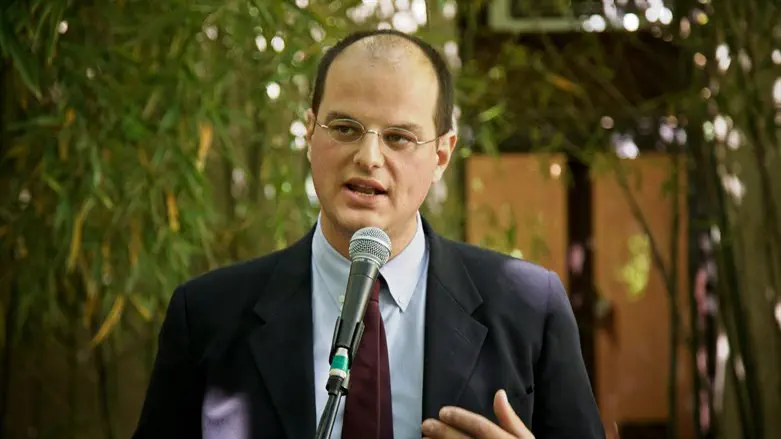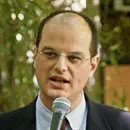
“What will Denmark be like if a third are Muslims? Here is a vision of a dystopian future. We are at a crossroads. We can passively watch as voluntary apartheid spreads, or we can have an honest conversation about how society will change as Democrats and Islamists segregate from each other".
A few lines are enough to understand how sensational the essay beginning with this paragraph and published by the main Danish newspaper, the liberal Politiken, is. Birgithe Kosovic, multi-award-winning writer, wrote it.
“If you understand the gravity of this, then you will be afraid for yourself when you say these things out loud. Immigration from non-Western countries is in the process of dividing the national community in the once homogeneous Western European countries”
The elite can celebrate "diversity" in restaurants, away from the real world. “But integration is a utopian dream. And it is not the state that leads to division and segregation, but the reluctant population,” she writes.
Kosovic comes from a country, the former Yugoslavia, which was conquered by the Ottoman Empire in the 14th century. The occupation lasted 500 years. In other words, the novelist knows what she is talking about. “30 percent is the critical border, it is where the community collapses, you can see it from the schools. If the trend doesn't stop, society will change. I issue a direct warning to politicians, the division between Muslims and non-Muslims can be fatal for our country, because conflicts are inevitable in a multicultural society.”
The shock of civilization is growing in the belly of the "happiest country in the world" (United Nations Index): Denmark is second place in the world for equal distribution of income, third for the index of democracy, sixth for environmental quality, seventh for wealth per capita and eighth for economic freedom. Denmark smiles from all its faces. This patient and happy people swim in abundance, working fewer hours a year than any other in the world, as uninhibited as in Lars von Trier's films. An old Danish tourist poster called it “the land of smiles and peace”.
Denmark is a country that gives subsidies to mothers, considered by many to be a global model of welfare assistance for motherhood and gender equality. And where Christianity is in the terminal stage (200 churches will close in the next few years). Or to put it in the New York Times, “in Denmark the word 'God' is one of the most embarrassing. You would rather go around the city naked than talk about God”.
Denmark has recently announced that it will limit the number of "non-Western" residents in neighborhoods with a high migration density. And it points to a ceiling of 30 percent, because too many non-Western foreigners in an area "increase the risk of the birth of parallel religious and cultural societies". Meanwhile, the Islamic countries are working in just that direction.
The Berlingske newspaper reported that Saudi Arabia has donated 4.9 million Danish kroner (660,000 euros) to finance the Taiba Mosque in the Nørrebro district, also known as "little Arabia". The Great Mosque of Copenhagen instead received a donation of 30 million euros from Qatar. Meanwhile, Turkey has funded the construction of 27 mosques in Denmark. According to a new mosque mapping from the University of Aarhus, there were 161 mosques in 2017, a considerable increase from 115 mosques in 2006.
In Denmark there is a ghettolisten (literally, the list of ghettos). The government censuses point out 15 particularly vulnerable areas and 25 areas at risk. The former are characterized by high indices of ethnic heterogeneity (over 50 per cent of the population of non-European origin), unemployment, crime, low schooling and low income, while the latter are about to reach them in the short-medium term.
In Denmark today, Danish Jews take off their kippahs in areas like Nørrebro. The Danish Jewish community has lost 25 percent of its members in the past 15 years, President Finn Schwarz told the Danish newspaper Jyllands-Posten. "Hiding Judaism in Copenhagen," headlines Tablet.
In Europe as a whole, we are not very far from the scenario described by Kosovic. We are only a generation away, but in major European cities we are already there: Brussels (where "Islam is the first religion"), Marseille ("40 per cent Muslim"), Birmingham ("30 per cent Muslim"), Cologne (" Allahu Akbar in Cologne was, the Bild title this week) and so on ... Everywhere the same scenarios in Belgium, France, England, Germany, large semi-Islamized cities, where the muezzins call to prayer , in schools the children of immigrants are often the majority and the old streets are only a memory. A principal in Odensee, Denmark's third largest city, advised Jewish students not to enroll in his high-immigrant school.
Beyond a certain point, cultural conflict can become armed, says Kosovic, who has received numerous accolades for his novel “Det Dobelte Land” based on his family's past in the Balkans. “We already see this in the ghetto areas, where an alternative monopoly of violence has emerged. Here is the state within the state with its own laws, its own courts (sharia) and its own police (sharia). It is the gangs, the imams and the clan leaders who decide. And if you, as a stranger, come into contact with the state within the state, no one can protect you, because the nation state has lost its dominion over those areas. Nobody knows how to stop it. Nobody is talking about how it will reshape society. The enclaves are growing. It's like watching a silent explosion. And everything happens voluntarily”.
And there is no alternative to the swooning, sleepy and suicidal fatalism of our elites.
